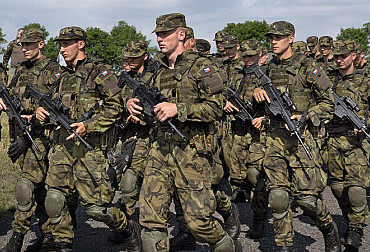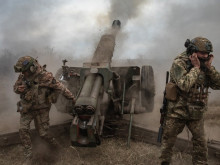French and British interests in the Indo-Pacific
In addition to the United States, which has clearly declared that it will prioritize the threat from China over the threat from Russia, France and the United Kingdom – states with nuclear arsenals, power projection capabilities, and major supporters of Ukraine – also have interests in the Indo-Pacific.
 Picture: In addition to the United States, which has clearly declared that it will prioritise the threat from China over the threat from Russia, France and the United Kingdom also have interests in the Indo-Pacific (pictured here is the British aircraft carrier HMS Queen Elizabeth | Fleet Air Arm aircrew - UK Ministry of Defence
Picture: In addition to the United States, which has clearly declared that it will prioritise the threat from China over the threat from Russia, France and the United Kingdom also have interests in the Indo-Pacific (pictured here is the British aircraft carrier HMS Queen Elizabeth | Fleet Air Arm aircrew - UK Ministry of Defence
In recent years, the French Government has issued two key documents on the Indo-Pacific – a foreign policy and a defence strategy. In both of these documents, France is considered an Indo-Pacific regional power. According to these strategies, the basic tasks of the French armed forces include the protection of French citizens, the defence of the territory and the exclusive economic zone. A key issue for French and, by extension, European security is the protection of the maritime, land and air routes in which the French armed forces are involved. France categorically rejects any blackmail and unilateral changes in the Indo-Pacific region. Where French jurisdiction extends, France will actively defend itself and, where appropriate, cooperate with other allies against any efforts by state and non-state actors aimed at weakening international legal norms.
France, given its overseas territories in the South Pacific, maintains a permanent military presence in the region, which is regularly reinforced by strategic means of power projection, with, for example, the deployment of an aircraft carrier in 2019 and the French Navy's deployment of a nuclear-powered attack submarine to the area two years later. In 2021, French forces also participated in the ARC 21 exercise alongside Japanese, US and Australian forces. In addition, there has been speculation about the possible deployment of French vessels to the RIMPAC 2024 exercise. In 2025, the French Navy plans to deploy its only aircraft carrier, the Charles de Gaulle, to the area and to train with its US allies on the cooperation of fourth and fifth generation aircraft.
The British Government is also actively pursuing its interests in the Indo-Pacific. In 2020, it published a document entitled Global Britain in a Competitive Age: the Integrated Review of Security, Defence, Development and Foreign Policy, which outlines foreign and security policy priorities to 2030. It is this document that highlights the UK's 'tilt' towards the Indo-Pacific during this decade. The aim of UK engagement in the Indo-Pacific is "to be the European partner with the broadest and most integrated presence in the Indo-Pacific - committed to long-term bilateral and multilateral closer and deeper partnerships." In terms of deployment of forces and assets, this is a sustained deployment in the region, for example to protect sea lanes. By 2030 then, according to the document, the UK will be "deeply engaged" in the Indo-Pacific. The document also mentions the planned cruise of the aircraft carrier HMS Queen Elizabeth through the Mediterranean and Indian Ocean at the time of its release, with its final destination in the Indo-Pacific. This voyage symbolised Britain's renewed global ambitions. During this decade, the British Naval Air Force intends to further modernise and reinforce the armament of the aforementioned aircraft carrier through the purchase of additional fifth-generation F-35 aircraft.
In addition, at the end of last year, the Foreign Affairs Committee of the British House of Commons stated that it was prepared to support the British Government if it decided to call China a 'threat' in an update of The Integrated Review and to add further specific steps it intended to take against Chinese threats to British security. At the same time, the Committee acknowledges the importance of the Indo-Pacific, but points out that even with the 'tilt' towards the Indo-Pacific, the British role in European security needs to be clearly defined (including in the context of the war in Ukraine).
The aim of this article is not to sound the alarm, but it should be pointed out that not only the United States, but also two other states of great importance in terms of European security have interests in the Indo-Pacific and the threat from China is certainly not underestimated. It is therefore likely that the capabilities that these states contribute to the collective defence of the Alliance may be lacking in Europe in the event of an armed conflict in the Indo-Pacific. For this reason too, it is necessary to significantly strengthen the defence capabilities not only of the Czech Republic but also of other European states so that they will be able to deter and possibly stop a possible Russian strike on Alliance member states in the future.





















